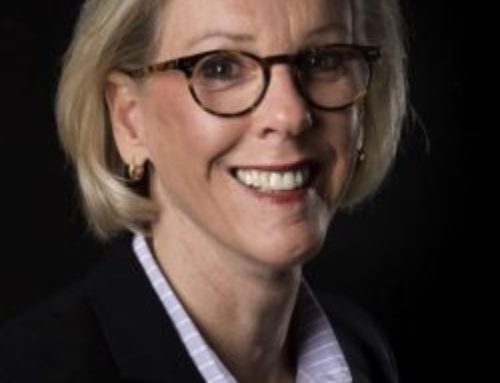Former Armwood player honored for diffusing racial tensions at Oklahoma.
By JOEY JOHNSTON
Tribune Staff Writer
(c) Tampa Bay Times. Originally published May 3, 2016.
Eric Striker, football player, never wanted to be solely categorized as an athlete. The idea of somehow changing the world, he once said, was intriguing.
Monday afternoon at the University of Oklahoma, where he matured into an All-American linebacker and helped the Sooners to last season’s College Football Playoff semifinals, Striker’s idealistic wish came true.
After fostering thoughtful dialogue to diffuse a racial incident that made national news and threatened to engulf the campus last year, Striker was presented the 15th Otis Sullivant Award, given annually to a faculty, staff or student member of OU who displays “keen perceptivity.”
The award, sponsored by the Ethics and Excellence in Journalism Foundation and named for a former Oklahoma journalist, carries a $20,000 prize and goes to a person “who manifests intuitiveness, instant comprehension, empathy, is observant and interprets from experience.”
Striker, the former Armwood High School all-state performer who just agreed to a free-agent contract with the NFL’s Buffalo Bills, is the first student recipient of the award.
“I appreciate it and I’m eternally grateful they chose me for this award,” Striker said. “I always wanted to show everyone I am bigger than football. I wanted to beat those stereotypes.”
In March 2015, a party-bus video surfaced from OU’s Sigma Alpha Epsilon fraternity in which members sang using a racial slur to indicate African-Americans would never be admitted to SAE.
Striker, who suggested the fraternity members were big Sooner fans who held up the players as heroes while masking their racist attitudes, appeared on CNN to talk about the issue. He participated in campus marches with OU football players — and coach Bob Stoops — as three spring practices were canceled.
Striker and other African-American student leaders — some athletes, some not — were summoned to the office of OU president David Boren for a meeting with members of the fraternity, which was disbanded. Boren told the Daily Oklahoman he felt tension and hostility in the room as fraternity officers, not the ones caught on videotape, issued an emotional apology and accepted responsibility for the incident.
There was silence. Striker stood up and offered forgiveness. He hugged each of the fraternity officers. Everyone else in the room followed. The healing had begun.
Striker said he felt no more hostility. To move on, he told the other students there must be forgiveness.
“It was one of the most touching things I’ve ever seen,” Boren told the Daily Oklahoman, saying he was moved to tears. “If it hadn’t been for Eric Striker, I’m not sure that moment would’ve happened.
“Since that incident happened, he has really helped create dialogue between the athletes and the Greek (fraternity) system. We just felt it was very appropriate to honor Eric for his human qualities.”
Striker’s initial reaction to the incident was emotional. His 18-second, profanity-laced Snapchat video went viral and he immediately regretted his words. He called a reporter from the Oklahoman to request an interview, so he might better convey his thoughts.
OU football players rallied around the incident, but Striker was the most visible spokesman.
Last fall, ESPN unveiled a project in which it interviewed 40 players from 15 different programs, while anonymously surveying 99 other players.
It was entitled, “Race and college football: The conversation Eric Striker started.”
“I just felt it was important for our voices to be heard,” Striker said.
Stoops said he appreciated the football contributions of Striker, his two-time captain who compiled 23 career sacks, including three in a victory against Alabama in the 2014 Sugar Bowl. But he was more impressed with Striker’s off-field actions.
“Eric is very perceptive and insightful, but more importantly, he has the intelligence and courage to vocalize his values where there is a need for change or motivation,” Stoops wrote in his nomination letter.
“I will personally remember him most for his interest in serving the ‘greater good’ in a markedly more significant and long-term manner,” OU athletic director Joe Castiglione wrote in a supporting letter. “He properly used ‘his voice’ as a student-athlete to positively influence others and bring people together.”
Monday afternoon’s ceremony was attended by Armwood head coach Sean Callahan, Nicole Gallucci, who was Striker’s assistant principal for curriculum at Armwood, and Corey Peterson, his linebackers coach in high school.
Striker already had received the Bob Kalsu Award, the highest honor for an OU football player, along with his fourth Sooner Scholar designation. During OU’s student-athlete breakfast, he was presented a Prentice Gautt Award, named for OU’s first African-American scholarship player, and an Athletic Director’s Leadership Award.
He also was honored with a Courage Award from OU’s Women and Gender Studies program, joining fellow recipients Mary and Sharon Bishop-Baldwin, the couple that fought Oklahoma’s same-sex marriage ban in court for nearly a decade.
Striker is preparing for his first minicamp with the Bills. But football might ultimately be regarded as Striker’s secondary accomplishment.
“That chain (of racism) has to be broken … because it’s taught down from generation to generation,” Striker said. “It takes somebody to step up in a family and say, ‘This is not right. This has to be broken. This is what I’m going to teach my children. This is where it stops.’ ”





